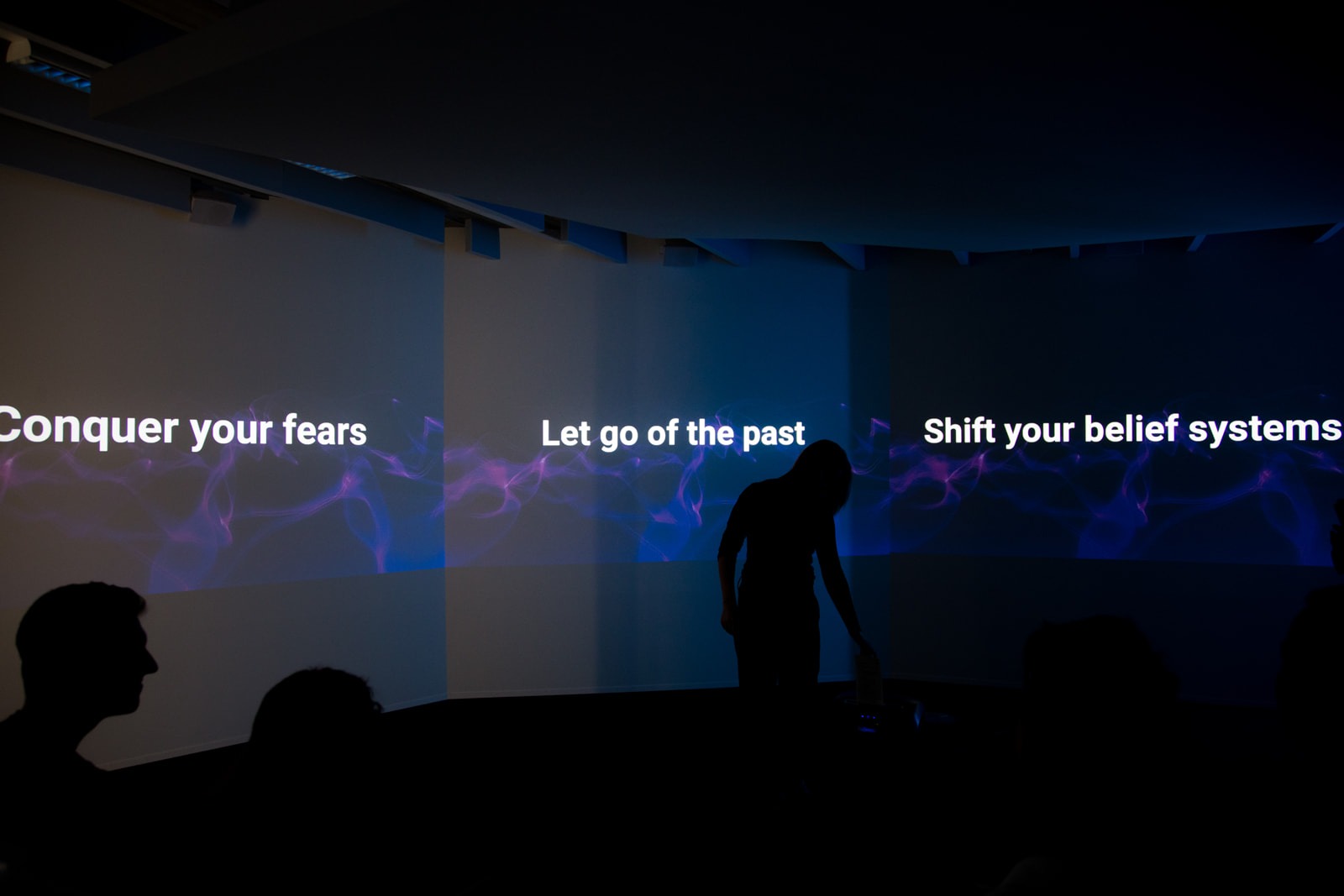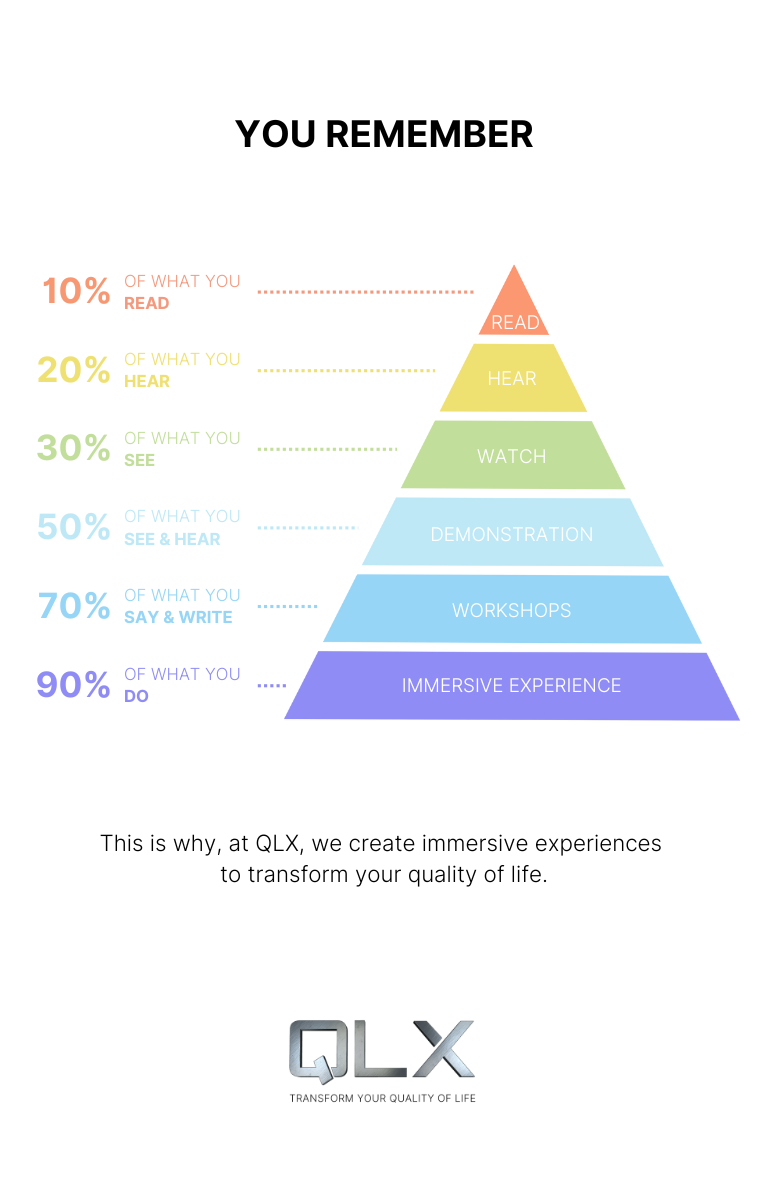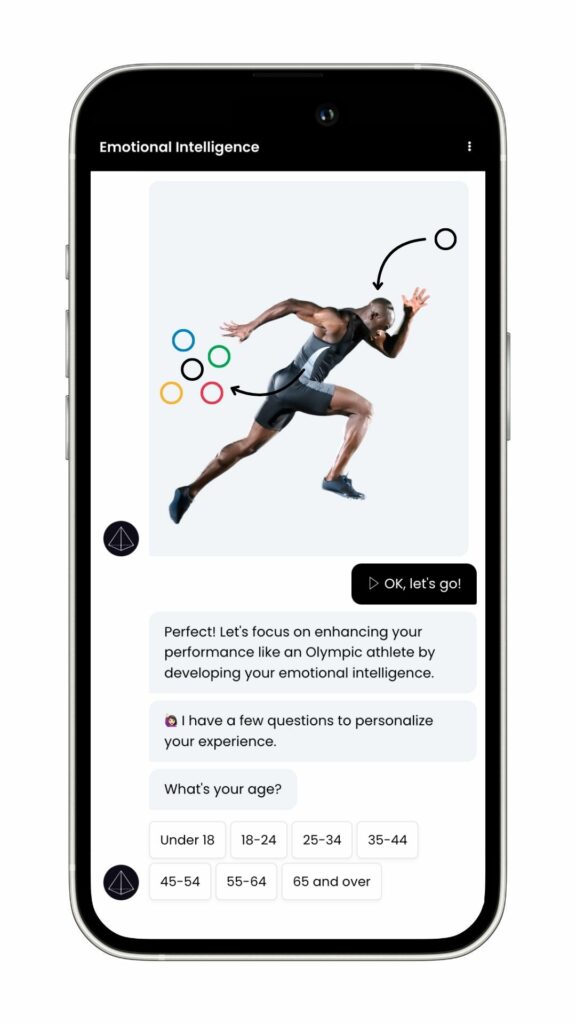Benefits of experiential learning

At QLX, we don’t just talk about transformation—we design experiences that create it.
Science shows that how we learn matters just as much as what we learn.
Traditional lectures and presentations lead to low retention. On average, people remember only about 5% of what they hear in a lecture two weeks later!
In contrast, immersive, embodied experiences—the kind we design at QLX—can boost retention rates up to 75% or more.
Why? Because these experiences engage the whole person: body, brain, emotions, environment, relation to others.
Immersive, embodied experiences can boost retention rates up to 75% or more.
This is the sign that hangs at the entrance of our experience center:

When you move, feel, interact, reflect, and apply — you don’t just learn.
You remember, internalize, and transform.
Here’s what makes immersive learning so powerful:
-
Multisensory engagement: Movement, sound, visuals, and emotion all work together to deepen memory.
-
Emotional impact: When an experience resonates emotionally, it sticks with you long after it’s over.
-
Contextual memory: Learning anchored in a real moment or space is easier to recall and apply.
-
Active participation: You’re not just listening—you’re part of it. And that changes everything.
This isn’t just theory. It’s backed by decades of research in neuroscience, education, and behavioral psychology — and proven every day through the feedback we get from our guests.
See below for scientific references.
Main takeaways
-
People forget up to 95% of what they hear in a typical lecture.
General principle: passive knowledge transfer does not lead to learning.
-
Immersive, embodied learning can boost retention to 75% or more.
This is why we build immersive experiences that engage mind, body, and social interaction.
-
Emotions supercharge memory—when you feel it, you remember it.
Emotions are proof that your subconscious is processing the information actively.
-
Movement, interaction, and reflection activate the whole brain.
Brain and body deeply influence one another
-
You learn faster and deeper when you're part of the experience.
An experience is only as good as your personal immersion in it
References
- Ventura, S., Brivio, E., Riva, G., & Baños, R.
- 2019
- Frontiers in Psychology, 10.
- 360° technology effectively assesses memory performance in a more immersive manner compared to non-immersive tasks, supporting its efficacy in cognitive function evaluation.
- Aguayo, C., Videla-Reyes, R., & Veloz, T.
- 2023
- Adaptive Behavior, 31, 497 - 515.
- Immersive learning environments in education lead to entangled cognition, resulting in a behaviorally inseparable entity with the virtual/immersive world.
- Trish L. Varao-Sousa et al.
- 2015
- PLoS ONE, 10
- Live lectures enhance memory performance and increase interest and motivation in students, while mind wandering is not significantly impacted by lecture format.
- Ianì, F.
- 2019
- Psychonomic Bulletin & Review, 26, 1747 - 1766.
- The sensorimotor model of memory suggests that the body plays a crucial role in memory processes, with manipulation of the body potentially affecting memory processes and recollection.


